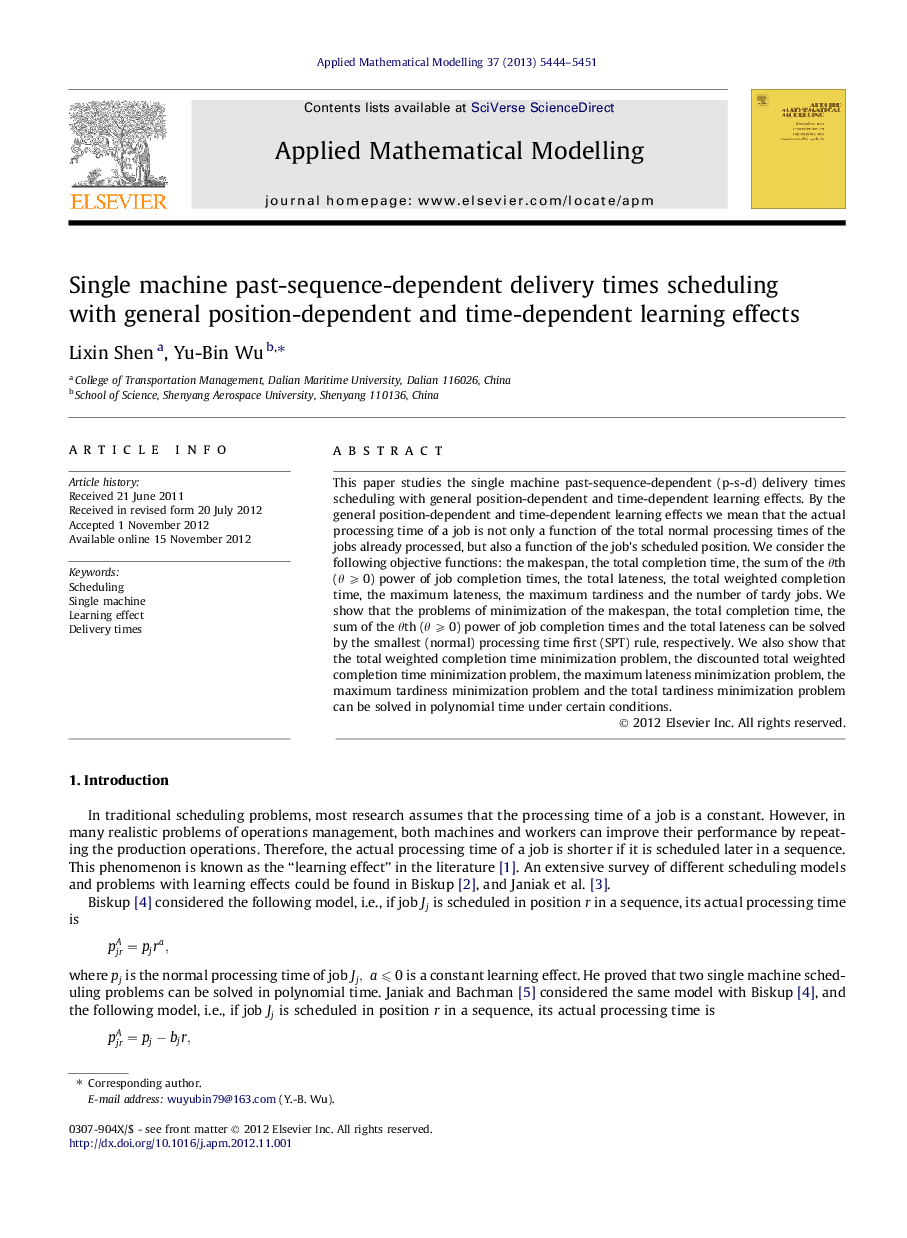ترجمه فارسی عنوان مقاله
برنامه ریزی زمان تحویل وابسته به توالی گذشته تک ماشین با اثرات یادگیری عمومی وابسته به موقعیت و وابسته به زمان
عنوان انگلیسی
Single machine past-sequence-dependent delivery times scheduling with general position-dependent and time-dependent learning effects
| کد مقاله | سال انتشار | تعداد صفحات مقاله انگلیسی |
|---|---|---|
| 43576 | 2013 | 8 صفحه PDF |
منبع

Publisher : Elsevier - Science Direct (الزویر - ساینس دایرکت)
Journal : Applied Mathematical Modelling, Volume 37, Issue 7, 1 April 2013, Pages 5444–5451
ترجمه کلمات کلیدی
برنامه ریزی - تک ماشین - اثر یادگیری - زمان تحویل
کلمات کلیدی انگلیسی
Scheduling; Single machine; Learning effect; Delivery times

